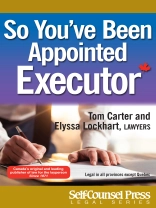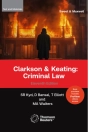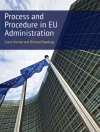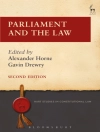The executor’s job is much more involved than you might initially believe. At its simplest, the executor’s role involves documenting assets of the deceased, paying the bills for the estate, and distributing assets to the rightful beneficiaries. These in themselves are not simple tasks, and there are many more to come.
Table des matières
Introduction xv
Part I: To Be, or Not to Be, an Executor 1
1 Finding or Choosing an Executor 3
1. It’s Tough to Choose a Good Executor 3
2. It’s Tough to Be an Executor 4
3. How I Discovered What Being an Executor Was All About 4
4. The Need Will Never Go Away 6
5. Who This Book Is For 6
2 The FAQs of Life for Executors 7
1. What Is an Executor? 7
2. What Are Sole, Joint, and Alternate Executors? 8
3. To Whom Am I Responsible As Executor? 8
4. The Will Says I’m Executor, So I Am, Right? 8
5. What’s Probate, and Why Do I Need It? 10
6. When Does My Authority As Executor Begin? 11
7. What Do I Have to Do As Executor? 13
8. What Liabilities Do I Face As Executor? 13
9. What Are the Attributes of a Good Executor? 14
vi So You’ve Been Appointed Executor
10. What If I Don’t Want to Be Executor? 15
11. How Do I Decide to Be an Executor or Not? 15
12. Can I Change My Mind after I Start? 16
13. Can I Get Help? 17
14. Who Can Help Me and How Do I Find Them? 17
15. Lawyers 18
15.1 Advantages of using lawyers 18
15.2 Lawyers’ fees 18
15.3 Finding a good estate lawyer 19
15.3a Step 1: Get the names of five good lawyers 19
15.3b Step 2: Work the phone 20
15.3c Step 3: Visit the prospects 21
16. Accountants 21
16.1 Advantages of using accountants 22
16.2 Accountants’ fees 22
16.3 Finding a good estate accountant 22
17. Trust Companies 22
17.1 How trust companies become executors 22
17.2 When to consider a trust company 23
17.3 Advantages of a trust company 23
17.4 Trust company fees and fee agreements 23
17.5 Finding a good trust company 24
18. The Challengers: Paralegal Services 24
18.1 Advantages and disadvantages of paralegals 24
18.1a Clarify what they will do 25
18.1b Keep control of the estate assets yourself 25
18.1c Be clear on fees 25
18.1d Finding paralegals 25
19. Specific Services 25
19.1 Tax-preparation services 25
19.2 Real estate agents 26
19.3 Personal property appraisers, evaluation specialists,
and auctioneers 26
Contents vii
Part II: The Eight Duties of the Executor 29
3 Duty Number 1: Make Reasonable
Funeral Arrangements 31
1. The Executor Makes Decisions about the Funeral 31
2. The Costs Must Be Reasonable 32
3. What If the Deceased Made Arrangements? 32
4. Be Careful with Headstones 33
4 Duty Number 2: Find and Take Control of the
Assets of the Deceased 35
1. Putting on the Rubber Gloves: My Trust Company Experience 35
2. Securing the Residence 36
3. Perishable Items 36
4. Valuables That Can Walk 37
5. Important Papers 37
6. Credit Cards 38
7. Safety Deposit Box Key 38
8. Mail 38
9. Insurance Policies 38
10. Household Furnishings 39
11. Lists and Memoranda 39
12. Unspecified Items: To Sell or Not to Sell? 40
13. Vehicles 41
14. Contacting Banks and Financial Institutions 41
15. CPP, GST/HST, and OAS 42
16. Businesses, Land, and Rental Properties 43
17. Collections 43
18. Loans Owing to the Deceased 44
5 Duty Number 3: Prepare an Inventory,
Value the Assets, and Keep an Account 45
1. Open an Estate Account 45
2. Start an Estate Inventory 46
3. Take Pictures 46
viii So You’ve Been Appointed Executor
4. Evaluating Estate Assets 46
4.1 Real estate 46
4.2 Vehicles 46
4.3 Household goods 47
5. Five Reasons to Keep an Inventory and Accounts 47
5.1 For probate fees 47
5.2 For taxes 47
5.3 For the beneficiaries 48
5.3a Who are the beneficiaries? 49
5.3b Per capita and per stirpes 49
5.3c What if there are no alternative beneficiaries
in the will? 49
5.3d Special status for spouses and children 49
5.3e The expanding definition of spouse 50
5.4 For the creditors 50
5.5 For your own protection 50
6 Duty Number 4: Find and Probate the Will,
If Necessary 53
1. What If You Don’t Have the Will? 53
2. Calling the Lawyer 53
3. What If the Lawyer Didn’t Keep the Will? 54
4. Looking for the Will 54
5. What If You Don’t Find a Will? 54
6. What If All You Have Are Copies of the Will? 55
7. You Have the Will but Do You Need Probate? 56
8. Two Kinds of Assets That Do Not Need Probate 56
9. How Probate Protects the Executor 57
9.1 Advertising for creditors 57
9.2 Issuing notices 58
9.3 Passing accounts 58
10. Probate Confirms the Will Is Valid 59
11. Avoiding Probate in Small, Cash-Only Estates 59
Contents ix
7 Duty Number 5: Deal with Debts and Claims
Against the Estate 61
1. Debts Relating to the Death 61
2. Debts of the Deceased 62
2.1 Looking for debts 62
2.2 Business or partnership debts 62
2.3 Medical bills and claims by caregivers 63
2.4 Insured debts 63
2.5 Advertising for creditors 63
2.6 Challenging claims by creditors 64
2.7 Child or spousal support 64
2.8 Leases and mortgages 64
2.9 Lawsuits against the deceased 64
2.10 Unenforceable debts 65
2.11 Claims by spouse or children for more of the estate 65
2.12 Paying debts 65
2.12a Enough for the debts but not for the beneficiaries 65
2.12b Not enough for the debts 65
2.13 The CRA always comes first 66
2.14 Keeping the house going 66
3. Debts Incurred by the Executor 66
8 Duty Number 6: Pay Any Taxes Owing by the
Deceased and the Estate 69
1. Capital Gains Tax 69
2. Tax Deferrals and Rollovers 71
3. Tax-Free Assets 73
4. Tax Returns at Death 74
5. Returns for the Deceased 74
5.1 The terminal return 74
5.2 Three optional returns 80
5.2a Optional return 1: The rights and things return 80
5.2b Optional return 2: Business income return for
partner or proprietor 81
x So You’ve Been Appointed Executor
5.2c Optional return 3: Testamentary trust
income return 81
5.3 Claiming credits on optional returns 82
6. Unfiled Returns for the Years before Death 82
7. Returns for the Estate 82
7.1 T3 return for the estate 82
7.2 T3 return for any trusts in the estate 83
8. Tax and the Beneficiaries 83
9. Clearance Certificates and Holdbacks 83
10. GST/HST at Death 84
9 Duty Number 7: Account to, and
Get Releases from, the Beneficiaries 87
1. Why You Must Keep Accounts 87
2. It’s a Self-Policing System 87
3. What the Beneficiaries Want 88
4. What the Executor Wants 88
5. What Unhappy Beneficiaries Can Do 88
6. Protect Yourself with Good Accounts 89
7. Beneficiaries Hate Silence 89
8. The Beneficiary Who Won’t Sign but Does Nothing Else 89
9. Your Executor Fees 91
10. Avoiding Trouble over Executor Fees 91
11. Calculating Your Fee 91
12. Setting a Reasonable Fee 91
13. Some Executors Don’t Charge a Fee 92
14. Can You Charge a Fee If You Also Receive a Gift? 92
10 Duty Number 8: Distribute to the Beneficiaries 93
1. Conversion to Cash or Distribution in Specie 93
2. Missing Beneficiaries 94
3. Deceased Beneficiaries 94
Contents xi
Part III: Two Typical Estates 95
11 Applying the Eight Duties to Two Typical Estates 97
1. Estate 1: Mary Smith — Sam’s Wife and Mother of
Their Children 97
1.1 The eight duties of an executor and the estate of
Mary Smith 102
1.1a Duty 1: Make reasonable funeral arrangements 104
1.1b Duty 2: Find and take control of the assets
of the deceased 104
1.1c Duty 3: Prepare an inventory, value the assets,
and keep an account 104
1.1d Duty 4: Find and probate the will, if necessary 104
1.1e Duty 5: Deal with debts and other
legitimate claims 104
1.1f Duty 6: Pay any taxes owing by the deceased
and the estate 104
1.1g Duty 7: Account to and get releases from
the beneficiaries 105
1.1h Duty 8: Distribute to the beneficiaries 105
2. Estate 2: Sally Smith — Sam’s Mother, an Elderly Widow 105
2.1 The eight duties of an executor and the estate of
Sally Smith 114
2.1a Duty 1: Make reasonable funeral arrangements 114
2.1b Duty 2: Find and take control of the assets
of the deceased 114
2.1c Duty 3: Prepare an inventory, value the assets,
and keep an account 116
2.1d Duty 4: Find and probate the will, if necessary 117
2.1e Duty 5: Deal with debts and other claimants
against the estate 117
2.1f Duty 6: Pay any taxes owing by the deceased
and the estate 117
2.1g Duty 7: Account to and get releases from
the beneficiaries 117
2.1h Duty 8: Distribute to the beneficiaries 118
xii So You’ve Been Appointed Executor
Appendix 119
Glossary 123
Samples
1 Income Tax and Benefit Return — CRA T1 General 2014 76
2 TX19 — Asking for a Clearance Certificate 85
3 Indemnity 103
4 Renunciation 109
5 Initial Inventory for Estate of Sally Smith, Deceased 110
6 Final Inventory for Estate of Sally Smith, Deceased 115
7 Account for Distribution Purposes, Estate of Sally Smith,
Deceased 116
8 Release 118
Tables
1 Dependant Relief Laws 51
2 Names of Intestate Succession Laws by Province and Territory 55
3 Probate Fees by Province and Territory 58
A propos de l’auteur
Elyssa Lockhart, jd, has been practicing law for more than 18 years, focusing on succession of business assets, estate planning, and estate administration. A sought-after speaker, she has given presentations at women’s conferences, legal seminars, and BC Business Thought Leadership events, and has held positions such as president of the Mission Regional Chamber of Commerce, member of the Board of Governors with the University of the Fraser Valley, and director of the BC Winter Games (2014).












